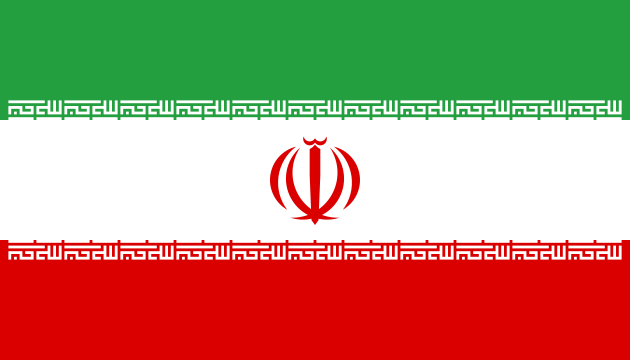12 September 2019
Iran
Pro-Rogue?
By Neil Tidmarsh
 Two days ago Iran beat Hong Kong 2-0 in a qualifying match for the next soccer World Cup. The result must have been as gratifying for Beijing as it was for Tehran, crowning a week in which China offered Iran a $280 billion lifeline to save its oil and gas industries from US sanctions.
Two days ago Iran beat Hong Kong 2-0 in a qualifying match for the next soccer World Cup. The result must have been as gratifying for Beijing as it was for Tehran, crowning a week in which China offered Iran a $280 billion lifeline to save its oil and gas industries from US sanctions.
A few months ago this column wrote “It’s almost as if Tehran is begging the rest of the world to treat it like the pariah which its enemies insist it is.” The statement is not exactly undermined by this entente between Tehran and a regime currently being criticised in various corners of the globe for stifling freedoms at home, for eroding democracy in Hong Kong, for unfair trading practices, for sinister cyber activity and for gobbling up the economies of smaller and weaker nations by loading them with unsustainable debts.
Other actions by Iran this week suggest that it continues to relish its rogue status. The Iranian oil tanker – seized at Gibraltar under suspicion of breaking EU sanctions by running oil to Syria but released after Iran insisted that it wasn’t and promised that it wouldn’t – turned up this week, at the other end of the Med, outside the Russian naval base at Tartus in, yes, Syria. Was it off-loading its 2.1 million barrels of oil to the Assad regime, thus proving Tehran’s claims to be lies and breaking those promises? “No” said the TankerTrackers website. “Yes!” declared none other than an Iranian government spokesperson and the Iranian national media, proudly and brazenly.
And the British-flagged tanker, seized by Iran in a tit-for-tat retaliation – has that been released yet, following the release of the Iranian vessel? No. Crew members have been set free but apparently the paper-work for the release of the ship itself has yet to be completed.
Seizing ships as political hostages is bad enough, but seizing human beings is obviously far worse. Nazanin Zaghari-Ratcliffe continues to languish in Evin jail; and this week it was reported that two more unfortunate women were recently seized while travelling in Iran and are being detained in that same prison. Neither of them has any kind of Iranian nationality; both are British-Australians carrying UK passports. One, a tourist, is allegedly being held to enable a prisoner swap with Australia. The other, an academic, has apparently been sentenced to ten years in prison and is being held in solitary confinement, though it isn’t known what the charges are or why she was arrested.
Even Iranian women enjoy only limited freedom inside their own country. It’s unlikely that any women were allowed to travel to Hong Kong to watch that football match, for instance; Iranian women are not allowed to watch sporting events. When Iran played at home against Syria in last year’s world cup qualifier, Iranian women weren’t allowed into the stadium even though Syrian women were.
This week Iranian media announced the death of a woman, Sahar Khodayari, who had been arrested and detained earlier this year for trying to get into a stadium to watch a football match; last week she set fire to herself on the steps of a Tehran courthouse in protest against her prosecution and possible jail sentence. She died from her injuries seven days later. She was a huge fan of Esteghlal Tehran, one of the country’s biggest teams, and had been caught by the police trying to get into the stadium to watch an Asian Cup match against al-Ain of the United Arab Emirates. Again, ironically, plenty of female fans of al-Ain from the UAE must have been allowed into the stadium, nevertheless.
Players, supporters and many women inside Iran are campaigning for the ban to be scrapped, but so far their calls have been ignored. Equally predictably, calls for Fifa to ban Iran from the 2022 world cup unless women are allowed into sporting stadiums are also falling on deaf ears.
Meanwhile, also this week, President Macron of France – with an eye to Europe’s commercial interests – offered Iran $15 billion of credit to off-set the effects of US sanctions, if Iran agreed in return to honour the 2015 nuclear deal (a deal which enabled trade with Iran). Iran has already taken two steps away from the agreement (breaking its terms by stockpiling more than 200kg of low-enriched uranium and by enriching it to more than 3.67%) and is threatening to take a third step (starting up new centrifuges) this Friday. So far Tehran’s response to M Macron’s offer has been typically equivocal. The USA’s response has been typically unequivocal – it will not relax sanctions in spite of M Macron’s interventions.
It seems that Tehran is prepared to take anything hostage – ships, their crew, innocent women and Europe’s commercial interests – and doesn’t care who knows it.


